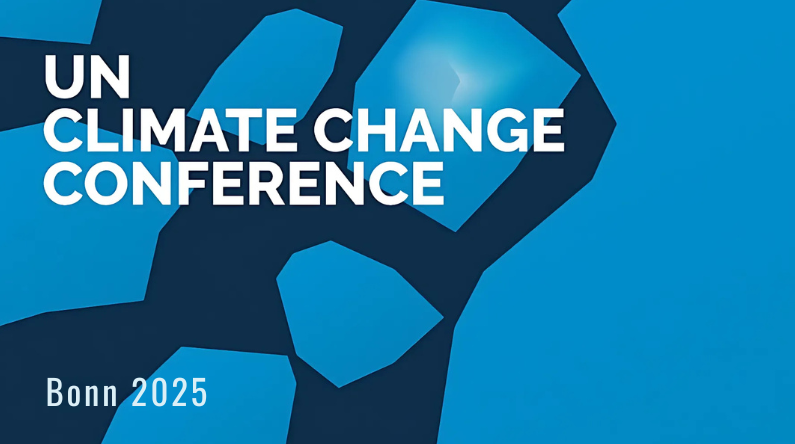BY OLAMIDE MARTINS OGUNLADE
The 62nd session of the UN climate talks (SB62) recently concluded in Bonn, Germany, but not with the urgency the world so desperately needs. From 16 to 26 June, over 5,000 delegates from across the globe gathered to finalise texts on the Global Goal on Adaptation (GGA), climate finance, and implementation strategies.
Yet, unsurprisingly, countries struggled to make meaningful progress ahead of COP30, scheduled for November 2025 in Belém, Brazil.
The meeting, hosted by the Subsidiary Body for Implementation (SBI) and the Subsidiary Body for Scientific and Technological Advice (SBSTA), was expected to bridge the gap between science and diplomacy. While the SBI evaluated the implementation of climate agreements, the SBSTA provided scientific guidance to shape policy decisions. Bonn also provided space for robust engagement among governments, intergovernmental organisations, climate scientists, NGOs, and indigenous community leaders.
But even with all the right voices in the room, the tone of the meeting was largely predictable — slow, political, and at times, disconnected from the urgency of the climate crisis.
The Stalled Agenda
The Global Goal on Adaptation took centre stage, as expected. The worsening impacts of climate change — from food insecurity to climate-induced displacement — made it impossible to ignore. Discussions also focused on climate finance, the loss and damage fund, technology transfer, and the tracking of Nationally Determined Contributions (NDCs).
However, despite some progress on a transparency framework, little headway was made on the critical issue of climate finance. Major powers seemed more inclined to divert resources to military expenditure than to meet their climate pledges, deepening the growing distrust among developing nations. The 1.3 trillion-dollar climate finance commitment made at the last COP in
Baku remains little more than well-written paperwork.
The vision of the Paris Agreement is slipping further out of reach.
Negotiations are moving too slowly, and political self-interest now appears to dominate climate diplomacy. Rather than committing to tried-and-tested solutions, parties seemed obsessed with “false solutions” like Net Zero targets and risky geoengineering experiments.
Delegates from the Global South rightly demanded flexibility and financial support to implement their climate plans. They also pressed for a more rigorous stocktake process to assess global progress, a proposal that negotiators from the Global North largely dismissed as too costly or disruptive — perhaps because they prefer to preserve the status quo.
Voices from the
Frontlines
Kwami Kpondzo, a climate justice advocate and member of the Make Big Polluters Pay (MBPP) coalition from Togo, who attended the session, summed it up bluntly: “SB62 was more of the same, with parties showing little willingness for meaningful discussions. The plenary agenda was blocked for almost two days, hinting at exclusion and hidden agendas. No significant progress was made on Articles 6.2 and 6.4 of the Paris Agreement, while geoengineering continues to gain traction.”
Kwami also expressed dismay at the continued reliance on market-based approaches, despite their long-documented weaknesses.
Similarly, Ndivile Mokoena, another MBPP representative from South Africa, emphasised the importance of climate negotiations that genuinely reflect lived realities. She called for greater use of disaggregated data and a deliberate focus on the inclusion of women, youth, and indigenous communities — groups that remain consistently marginalised in global climate discussions.
A Notable Absence
One of the more striking developments at SB62 was the absence of the United States — a major polluter and a key player in previous negotiations. Their no-show elicited both regret and relief. On one hand, their absence left a significant void that risks stalling progress. On the other, it created space for China and leading European countries to step up. Washington’s departure will potentially alter the dynamics and cause significant setbacks.
But this is also a chance for Africa. Through the Africa Group of Negotiators (AGN), the continent can now reposition itself, shed its historical dependence on external influences, and invest in renewable energy solutions tailored by local expertise. Africa must begin to harness its vast potential for sustainable growth, driven not by carbon-heavy imports, but by home-grown, climate-resilient technologies.
Looking Ahead to COP30
With COP30 on the horizon, there is still room for renewed commitment. Yet Africa, and indeed the world, cannot afford to continue along this path of inconsistency and political posturing. The clock is ticking, and climate impacts are already devastating communities with little contribution to the problem.
It is time for negotiators — especially those from the Global North — to move beyond empty promises and market fixes. We need genuine, urgent action that centres people, not profits.
The next stop is Brazil. The question is: will the world finally rise to the moment?
Ogunlade is the Associate Director, Climate Change at Corporate Accountability and Public Participation Africa (CAPPA)

